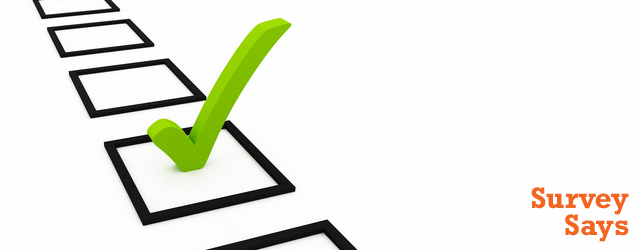Poll: Arkansas voters approve of Trump, Hutchinson’s COVID-19 response
by March 25, 2020 5:07 pm 1,828 views

More than 61% of Arkansas voters approve of President Trump’s handling of the COVID-19 pandemic while almost 80% approve of Gov. Asa Hutchinson’s performance, according to a survey by the Little Rock-based political consulting firm Impact Management Group.
The survey of 800 registered Arkansas voters conducted March 23 also found the vast majority agree COVID-19 is a serious public health problem, and almost everyone agrees it’s a serious economic threat. Almost 50% favor the state issuing a mandatory “shelter in place” order. Meanwhile, 34.7% said they or a member of their household had been laid off or experienced reduced work because of the virus.
The poll found that 45% of respondents strongly approve of Trump’s handling of the crisis, while 16% somewhat approve. Another 29% strongly disapprove, while 5.6% somewhat disapprove. The rest were unsure.
Respondents’ views fell sharply along party lines, with 95.1% of Republicans approving of Trump’s performance, but only 14.4% of Democrats approving. The breakdown among independents was 56.5% approving vs. 39.9% disapproving, while 68.1% of those saying they are “something else” approving versus 22.3% disapproving.
The poll found that 39.7% said they generally identify as Republican, while 27.8% identify as Democrat and 23.5% as independent. Another 9% identify as something else.
At the state level, 43.5% strongly approve of Hutchinson’s performance, while 36% somewhat approve. Another 8.5% somewhat disapprove, while 5.7% strongly disapprove. Hutchinson had the approval of Arkansans across the political spectrum, with his highest numbers among Republicans at 89.3%. He also enjoyed the approval of 72.2% of Democrats, 78.2% of independents, and 68.1% identifying as something else.
Almost half of respondents, or 49.55%, agreed with the idea that “Arkansas should impose more drastic measures such as a statewide mandatory ‘shelter in place’ order, which would permit people to only leave their homes for designated ‘essential’ purposes.” Another 32.4% disagreed with that statement, while 18% were unsure.
Most Arkansans believe the coronavirus is a threat to public health. The poll found that 69.3% said it is “very serious,” while 21.6% said it is “somewhat serious.” Only 6% said it was “not too serious,” while 1.65% said it is “not serious at all.” Even higher percentages say the virus is a threat to the economy. The poll found 88.3% saying it is a “very serious” threat, while 9.4% said it is “somewhat serious.” Only 1.5% said it is “not too serious,” while 0.85% said it is “not serious at all.”
Given those threats, 58.6% of respondents said policymakers should “make decisions that balance public health and economic concerns. Another 37.3% said decisions should be made based primarily on protecting public health. Only 2.9% said decisions should be made primarily to protect the economy.
Mirroring their support of Trump’s performance, 56.1% said they did not blame the Trump administration for what the poll described as the “slow rollout and shortage of coronavirus testing.” Another 35.7% said they did blame the Trump administration, while 8.2% said they were unsure.
Of those who said they don’t blame Trump, 33% blamed the Centers for Disease Control and Prevention, while 17.7% blamed Congress. Another 8.5% blamed President Obama’s administration, while 2.1% blamed the state of Arkansas and only 0.36% blamed their local hospital or healthcare provider. The leading vote getter was “someone else” at 38.4%.
Asked about “social distancing,” only 3.7% said they are living much as before. Responding to that question, 39.1% said their family members are “staying mostly home” but leaving for groceries and supplies, neighborhood walks or exercising. Another 37% said they are leaving home for those reasons and to work. Another 4.4% are “staying home some, but getting out for both essential and non-essential purposes as it suits us.” Finally, 15.8% are confined to their homes and obtaining groceries and supplies from friends, neighbors or delivery services.
Sixty-five percent of respondents said they are employed full-time or part-time or self-employed, but only 34.3% said their jobs could be performed remotely from home. Still, 71.5% said they are performing their current job by tele-working, while only 8.2% are working at their place of employment. Another 20.3% are working some at both locations.
Asked about their level of concern that they might contract the virus, 30.15% said they are “very concerned,” while 40.4% said they are “somewhat concerned.” Another 19.7% said they are “not too concerned” and 9.2% said they are “not concerned at all.”
Impact Management Group Managing Partner Robert Coon noted that younger respondents are more concerned about contracting the virus than might be expected and have been most affected by the epidemic. The two age groups that were most likely to say they are very concerned about contracting it were those under 30, at 34%, and those ages 65-plus, at 33%. The under-30 age group was the most inclined to support a shelter in place mandate, with 58% supporting it. Meanwhile 75% said their job could not be done by telecommuting. Coon noted that many young people work in retail and restaurant jobs.
“They’re being impacted at the workplace, they’re concerned about getting it, and they’re not in jobs that necessarily are coronavirus impact free, so maybe we should cut them a little bit of slack,” he said.
Cable TV news was respondents’ top choice for coronavirus information, with 27.3% calling it their primary news source. Online news websites was second at 21.8%. Third was network TV news at 14.8%, followed closely by social media at 13.2% and local TV news at 13.1%. Radio and satellite radio was the primary news source for 2.2% of respondents, while local printed newspapers was the primary news source for 0.46%.
The poll had a margin of error of plus-minus 3.46%.
